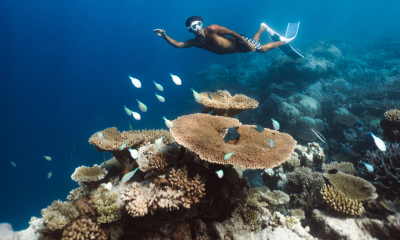Featured
Six Senses joins Global Tourism Plastics Initiative to become plastic free by 2022

Six Senses Hotels Resorts Spas has become one of the first signatories of the Global Tourism Plastics Initiative, a series of UN-led efforts to address plastic waste and pollution at its source.
Environmental and social responsibility is at the heart of the Six Senses. In a shared world of limited natural resources and fragile ecosystems, sustainability isn’t a choice, it is the only choice. It demands doing what is right rather than what is easy.
At Six Senses, this means going beyond banning single-use plastic and unnecessary waste and to be free of all plastics by the year 2022.
This strategy is based on the life cycle assessment of plastics and understanding the impact these products have on the environment from fossil fuel extraction through to disposal. It’s an approach that focuses on upstream suppliers, seeking innovative solutions and promoting a de-plasticised lifestyle by providing more sustainable alternatives.
Joining the Global Tourism Plastics Initiative is another step in this direction to address the root causes of plastic pollution. It enables businesses and governments to take concerted action and lead by example.
As a signatory of the Global Tourism Plastics Initiative, Six Senses furthers its commitment to eliminating, innovating and circulating its use of plastics by 2025, although the brand is on its way to being Plastic Free in 2022. This might be a bold target; however, as the effects of climate change and plastic pollution become increasingly dire around the world, hosts and guests are supporting and even demanding action.
Six Senses is committed to:
- Eliminating all plastics from its operations by the year 2022, with priority on single-use plastics and going beyond that to remove 100 percent virgin plastic sourcing
- Zero waste to landfill as a general goal for all Six Senses resorts
- Continuing its policy of no single-use shampoo and amenity bottles, plastic water bottles and plastic straws
On signing the Global Tourism Plastics initiative, Six Senses pledges to:
- Eliminating remaining unnecessary plastic packaging from rooms and bathrooms by 2022
- Eliminating all unnecessary plastic packaging from service areas by 2022.
- Introducing more reusable solutions in kitchens to replace unnecessary plastic packaging (cling film and plastic packaging of fresh products) by 2022
- Introducing reusable solutions in service areas (host shops) to replace single use packaging by 2022
- Sourcing naturally compostable packing and other materials where appropriate
- Working with suppliers to avoid plastic packaging, source plastic free alternative products, and arrange packaging take-back programs wherever possible
- Working with other hotels and industry partners to share best practices, supplier recommendations, and other information to help the industry move away from plastic
- Sorting all waste materials, upcycling or composting when possible on site, sending to offsite recycling where available – all with the aim of zero waste to landfill
“The travel industry is growing at a rapid rate on a planet that has limited natural resources. That means all hospitality leaders have a responsibility to stand up and be accountable for making a sustainable difference and achieving measurable results,” chief executive Neil Jacobs said.
“Our health and wellness ethos is around making our guests feel better inside and out, so it makes sense for our social and environmental policies to make them feel good about their choice of vacation and their impact on the ecosystems around them too.”

Led by the UN Environment Programme and UN World Tourism Organisation, in collaboration with the Ellen MacArthur Foundation, the Global Tourism Plastics Initiative unites more than 450 businesses, governments, and other organisations behind a common vision and targets to address plastic waste and pollution at its source.
To realise this vision, tourism companies and destinations commit to eliminate the plastic items they don’t need; innovate so all plastics they do need are designed to be safely reused, recycled, or composted; and circulate everything they use to keep it in the economy and out of the environment.
By taking serious action in a coordinated and determined manner on plastic pollution, the tourism sector can help preserve and protect the places and wildlife that make destinations worth visiting.

In Maldives, Six Senses runs the Six Senses Laamu resort, which reopened its doors to guests on August 1.
Six Senses Laamu is the first and one of only two resorts in the pristine Laamu atoll. Most of the villas and facilities are built overwater, however beach villas and on-land dining are an option. All villas offer a sense of privacy and seclusion, with an amazing view to the ocean and Maldivian nature.
Six Senses Laamu offers a wide range of dining options, with cuisines from around the world, an ice cream parlour, an overwater wine cellar and a signature Chill Bar.
Many activities, excursions and options are available for everyone to enjoy, both overwater and underwater, in addition to the Six Senses Spa.
Six Senses Laamu hosts one of the largest teams of marine biologists in the Maldives, the Maldives Underwater Initiative (MUI). Staff from Six Senses Laamu and its three partner NGOs: Manta Trust, Blue Marine Foundation and Olive Ridley Project work together under the banner of MUI and seek to lead the tourism industry in the Maldives with meaningful marine conservation efforts based on research, education and community outreach.
Cooking
Patina Maldives hosts Chef Shannon Bennett for exclusive April residency

From 1 to 5 April 2026, Patina Maldives, Fari Islands will host Shannon Bennett, one of Australia’s most recognised culinary figures and the creative force behind Belongil. The residency brings together a chef known for shaping dining as an emotional and reflective experience with a destination defined by perspective, creativity and purpose.
Bennett’s career extends beyond traditional notions of cooking. Through projects such as Vue de Monde and Belongil, he has explored dining as a medium for memory, connection and emotion, placing emphasis on experience rather than consumption. His approach centres on creating moments that remain with guests long after the meal has ended.
At Patina Maldives, the residency represents a convergence of shared values. Over five nights, guests are invited to take part in a limited series of dining experiences shaped by intention, curiosity and a sense of place. Rather than recreating Belongil in another setting, the programme evolves its philosophy, drawing inspiration from the natural rhythm and clarity of the Maldivian environment.
Commenting on the collaboration, Bennett said Belongil was conceived as more than a place to eat, but as a space for ideas, connection and lasting moments. He noted that Patina Maldives reflects a similar sense of purpose, adding that bringing his work into the island setting offered an opportunity to create experiences that feel grounded, honest and meaningful.
Patina Maldives continues to develop its identity by providing a platform for global creative voices to shape new conversations and perspectives. The residency with Bennett aligns with this approach, positioning cuisine as one element within a broader cultural and experiential narrative.
Tom Bray, Director of Lifestyle at Patina Maldives, said the resort exists to bring people closer to ideas, creativity and self-discovery. He added that welcoming Bennett reflects this philosophy, describing the residency as an experience designed to shift perspective rather than focus solely on gastronomy.
The residency is presented as an experience defined by intention rather than spectacle. Taking place over five nights on a single island, it brings together Patina Maldives and one of the culinary world’s most reflective minds for a programme shaped by presence, purpose and a sense of moment that cannot be replicated in the same way again.
Featured
You & Me Maldives unveils curated Premium All Inclusive programme
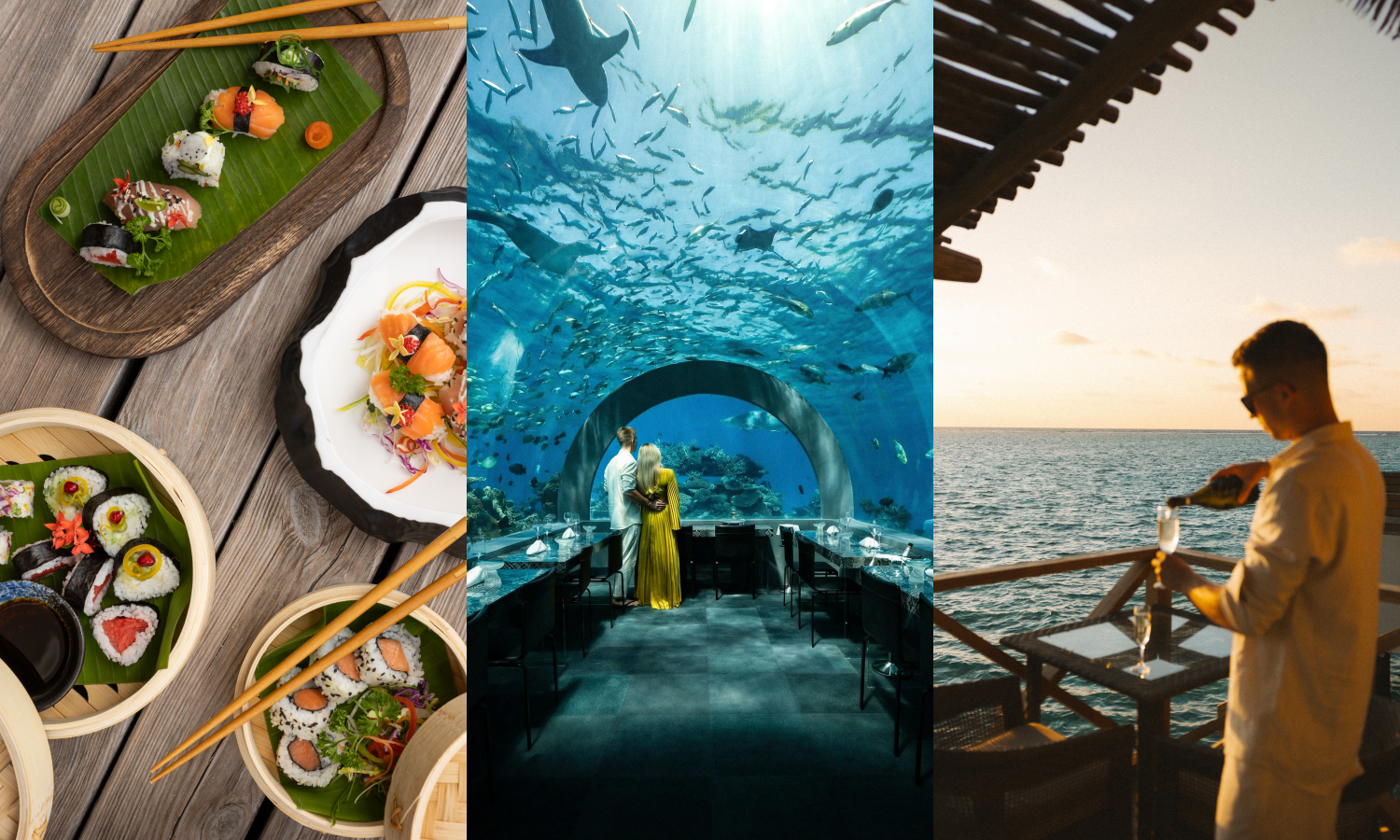
You & Me Maldives, the adults-only luxury retreat under The Cocoon Collection, has announced the launch of its new Premium All Inclusive experience, aimed at enhancing island stays through a more seamless and comprehensive offering in the Indian Ocean.
The Premium All Inclusive experience is designed to begin from the point of arrival. Guests receive complimentary access to The Cocoon Collection Lounge at the seaplane terminal at Velana International Airport, where services are provided to ensure a smooth transition before the journey to the resort.
On arrival at the island, guests are welcomed in their villas with a chilled bottle of sparkling wine and a selection of canapés. The Premium All Inclusive plan includes unlimited premium beverages by the glass, featuring a curated range of wines, signature cocktails, top-shelf spirits, international beers and non-alcoholic options. The in-villa minibar is replenished daily with soft drinks, international beers, red and white wines, as well as assorted snacks. For stays of five nights or more, guests also receive two bottles of premium liquor from a selected list, provided once during the stay.
The experience further includes a range of activities. Guests staying a minimum of three nights are offered one sunset cruise and one snorkelling excursion per stay, while those staying seven nights or more are entitled to a catamaran cruise. Unlimited use of snorkelling equipment and non-motorised water sports, including canoeing, kayaking and paddle boarding, is also included, subject to weather conditions.
Dining forms a central part of the Premium All Inclusive concept. Guests can enjoy three themed dining evenings, including a seafood barbecue under the stars featuring prawns, lobster and oysters. For stays of five nights or more, guests may also take part in a complimentary group cooking class, with a choice between ethnic or Italian cuisine, led by the resort’s culinary team.
Wellness offerings are also incorporated into the programme, with guests able to participate in up to three complimentary sunrise yoga sessions per stay, subject to availability.
The introduction of the Premium All Inclusive experience reflects the resort’s focus on personalised service and carefully curated stays. The offering is positioned to appeal to couples seeking relaxation, romance or activity-led experiences within an adults-only island setting.
Featured
Eid celebrations at SO/ Maldives blend Arabic tradition and Maldivian culture

SO/ Maldives is inviting global travellers this season to reimagine Eid not merely as a holiday, but as an immersive island escape. Located just 15 minutes by speedboat from Malé, the fashion-forward private island retreat sets the stage for a celebration where cultural heritage, contemporary luxury and tropical glamour come together.
At the centre of the festivities is an authentic culinary experience at Hadaba, the resort’s award-winning Arabic restaurant. Guests are offered Levantine flavours, artisanal mezze and traditional recipes presented with a modern approach, creating a setting for shared dining and celebration. As part of the resort’s dine-around concept, Hadaba can be included in a wider culinary journey across the island, allowing guests to experience Arabic cuisine alongside the resort’s other dining venues.
As evening falls, celebrations move to Lazuli Beach Club, where shisha rituals and Arabic-inspired refreshments are served in a beachfront setting. Traditional performances are complemented by Maldivian Boduberu drumming and fire dance displays, creating a cultural programme designed to appeal to international travellers seeking meaningful experiences.
Across the island, Eid is marked through a series of curated activities aimed at encouraging connection and creativity. Cultural workshops, including palm-leaf artistry and henna sessions, offer opportunities to explore heritage, while younger guests are engaged through themed crafts, interactive games and sweet treat decorating. The overall atmosphere remains celebratory while maintaining a relaxed pace that reflects the resort’s character.
Beyond the festive programme, the resort positions the long weekend as a fully immersive island retreat. Guests stay in beach and overwater villas featuring private pools and ocean views, with interiors inspired by high fashion. Time is spent between spa treatments, lagoon activities, beach club experiences and sunset dining, balancing celebration with seclusion.
To mark the season, the resort has introduced two limited-time stay offers. The One Night on Us offer provides savings of 33 per cent on stays of three nights or more, along with daily breakfast, complimentary transfers and spa privileges. The Soo Summer package offers preferential rates combined with spa experiences, curated dining inclusions and additional benefits for water villa stays.
Welcoming travellers from Europe, Asia, the Middle East and beyond, the resort presents Eid as a global celebration where Arabic traditions, Maldivian culture and contemporary design are brought together. This season, guests are invited to exchange routine for island surroundings and experience Eid through a redefined island perspective.
-
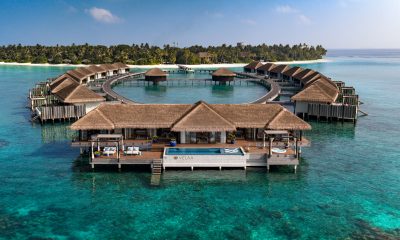
 News1 week ago
News1 week agoRefined overwater vision: Velaa Private Island’s upgraded Ocean Pool House
-
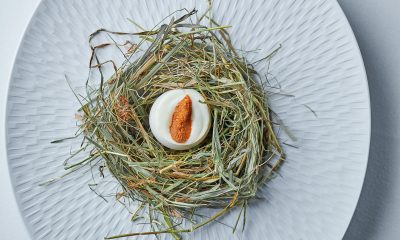
 Cooking1 week ago
Cooking1 week agoA spring of flavours: Nowruz dining series at JW Marriott Maldives Resort & Spa
-
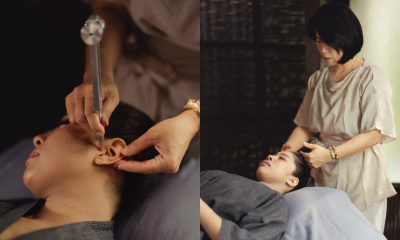
 Featured1 week ago
Featured1 week agoYoko Kawaguchi to lead holistic wellness residency at Vakkaru Maldives
-
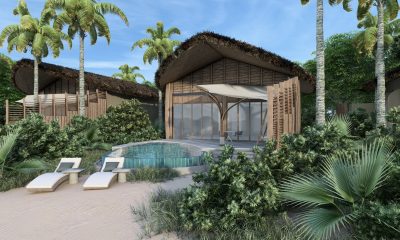
 News7 days ago
News7 days agoPulse Hotels & Resorts unveils Aura Maldives, a mindful luxury sanctuary
-
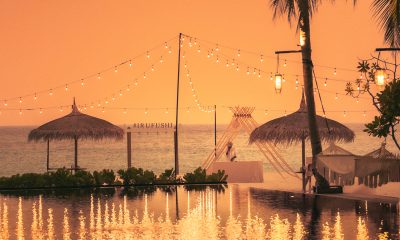
 News1 week ago
News1 week agoSun Siyam Iru Fushi sets new nenchmark with 24 Hour Premium All Inclusive Dine Around
-
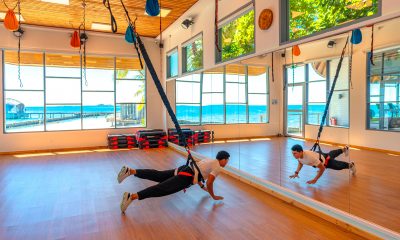
 Fitness1 week ago
Fitness1 week agoOUTRIGGER Maldives Maafushivaru launches expanded wellness programming for 2026
-
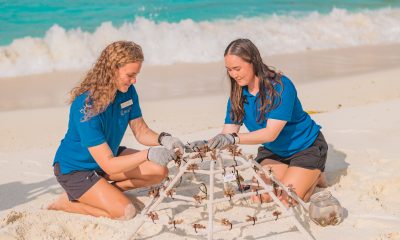
 Action1 week ago
Action1 week agoSheraton Maldives Full Moon celebrates sixth anniversary of Reefscapers collaboration
-
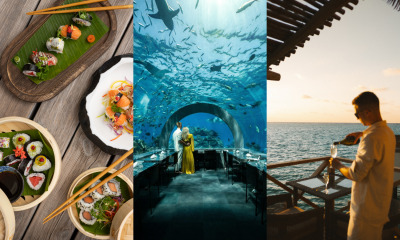
 Featured1 week ago
Featured1 week agoYou & Me Maldives unveils curated Premium All Inclusive programme





